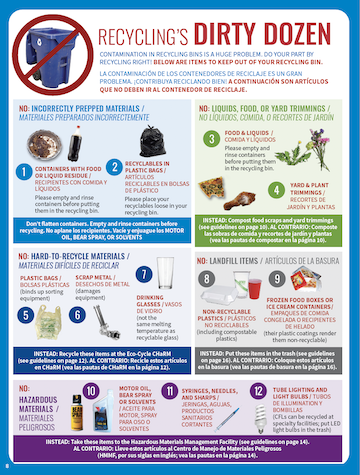 View
Print
Download
View
Print
Download
This resource is licensed under an Attribution NonCommercial NoDerivatives Creative Commons license.
See the Full Policy
Want to modify this resource?
Guidelines Poster: Recycling Contaminants
Released in 2025. One page. Dimensions: 8.5″ x 11″
These “dirty dozen” guidelines show you what NOT to put in your curbside recycling bins in Boulder County, and what to do with these materials instead.























